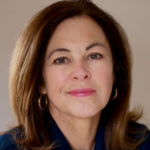Becoming a medical doctor has never been easy, but today the nation’s best and brightest have to do more than graduate college with straight A’s, ace their MCATs, and spend considerable time and money applying to med school.
If top students are fortunate enough to achieve the herculean goal of getting into medical school, they must spend the next four years dodging progressive politics that, alarmingly, are seeping into the medical school curriculum. There is now a push—backed by the American Medical Association (AMA) and the International Federation of Medical Students’ Associations— to add climate change to medical students’ already packed course loads. A coalition of nearly 200 medical schools supports this move.
Old Diseases, Climate Focus
The coalition is falsely claiming climate change has unleashed an epidemic of diseases, to which doctors must now focus special attention. What are these exotic illnesses, you may ask? Asthma, heat stroke, Lyme disease, allergies, and respiratory and cardiovascular conditions are some of the ailments listed by the leaders behind the “climate change in med school” movement. Climate change is “really the greatest health danger of our century,” said Mona Sarfaty of the Medical Society Consortium on Climate and Health.
None of these diseases are new. Epidemics and diseases, those listed above and thousands of others, have existed since the beginning of time, regardless of the political and social context, and to a large extent regardless of climate.
Imagine how ridiculous it would be to learn doctors in the Middle Ages were required to pass a test on the intricacies of the feudal political system prior to treating the plague. There are any number of professionals—scientists, epidemiologists, etc.—whose job it is to figure out why diseases rise and fall in prominence. Medical schools should be focused on the how of preventing and treating disease, not indoctrinating students in a politically tinged subject like climate change, a topic not even tangentially related to the causes of any particular disease or instance of illness.
Politics Instead of Business
When medical schools engorge their curriculums with political fare, it comes at the expense of important subjects. For example, few doctors are now taught anything about running a practice in today’s overpriced, overregulated, and overly complex health care market. If doctors want to learn about operating a practice that can thrive outside the clutches of insurance companies or government payers, they must learn it on their own.
Organizations such as The Benjamin Rush Institute, which promotes service to patients, not government, have run into numerous obstacles setting up chapters in medical schools. Medical students themselves have too much on the line to speak out. In the words of one student who spoke on the condition of anonymity, “business” is a dirty word on medical school campuses. “Even if there were professors willing to create and teach such a course,” the student said, “who would hire them or let them teach it?”
Physicians in direct primary care will tell you they had to learn about the business side of operating a medical practice on their own.
Looming Doctor Shortage
When primary care doctors aren’t taught how to make a practice succeed—one that can serve patients better while rewarding doctors and their staff—they gravitate instead to fields where their considerable time and investment will pay off.
The United States will face a shortage of nearly 122,000 physicians by 2032, and although the aging population explains part of the scarcity, there is no question medical schools and residency programs need to do more to make medicine an attractive profession.
Doctors do not relish spending 18-hour days coding and documenting patient care for third-party payers. They and their patients would be better served by learning how to thrive in the evolving marketplace, where technology is changing the face of medicine and patients demand more value for their buck. Bolstering primary care is key because doctors on the front lines can remedy complex and expensive ailments early on.
There is no room in today’s daunting health care system for wasting time and money teaching doctors about climate change. As taxpayers and consumers who foot the bills, we should demand medical schools focus on something less global and more important: the patient.
AnneMarie Schieber ([email protected]) is managing editor of Health Care News and a research fellow at The Heartland Institute.





